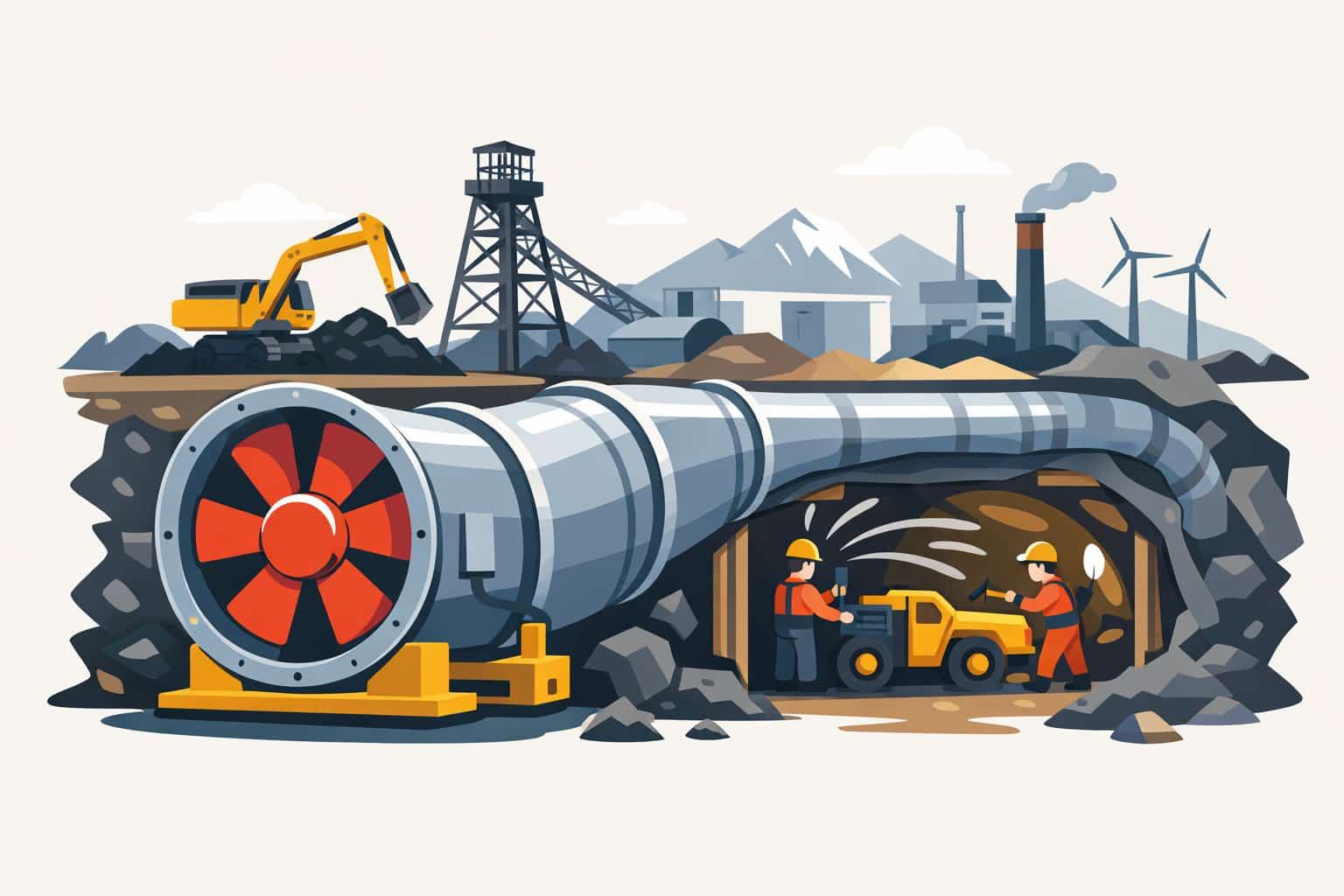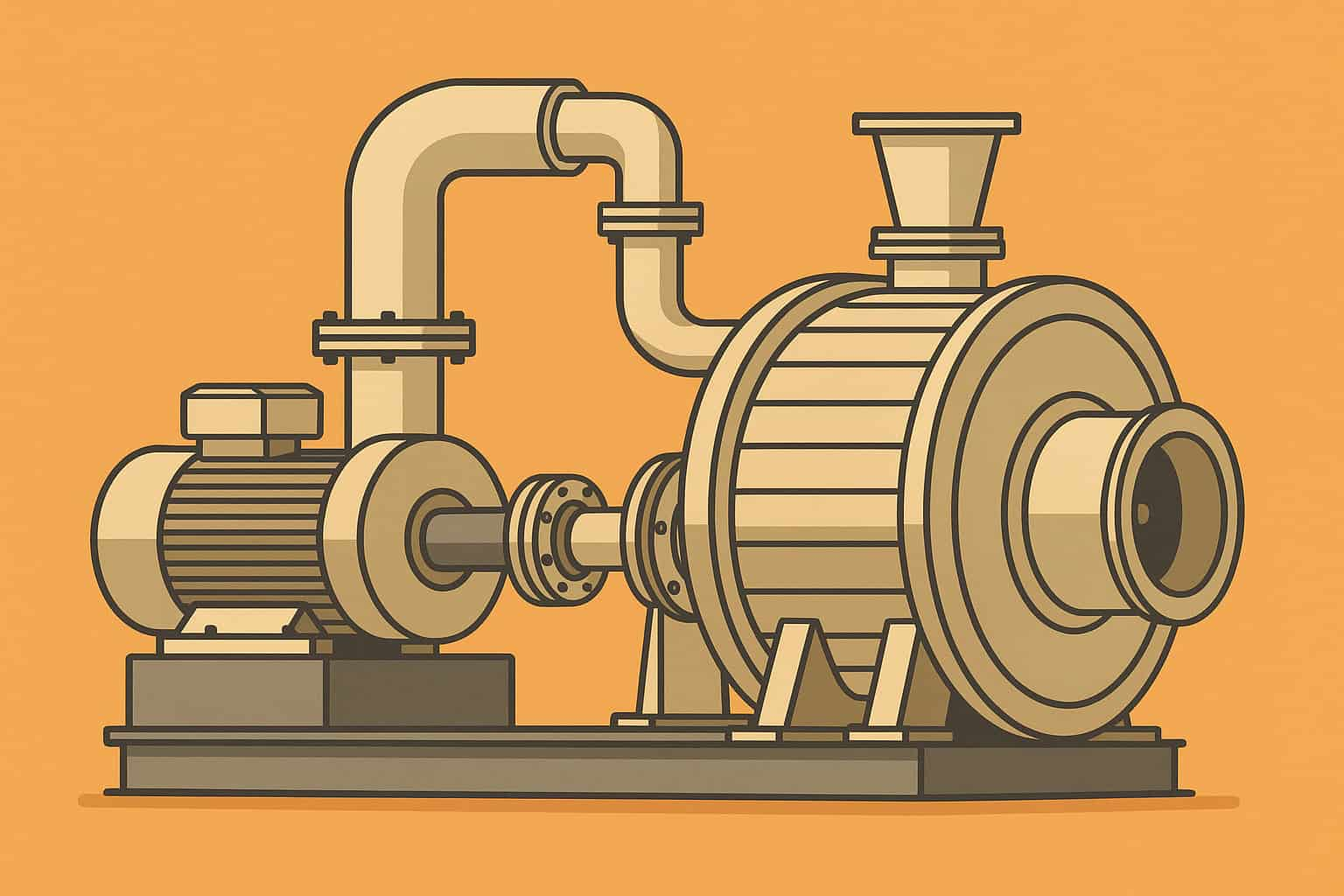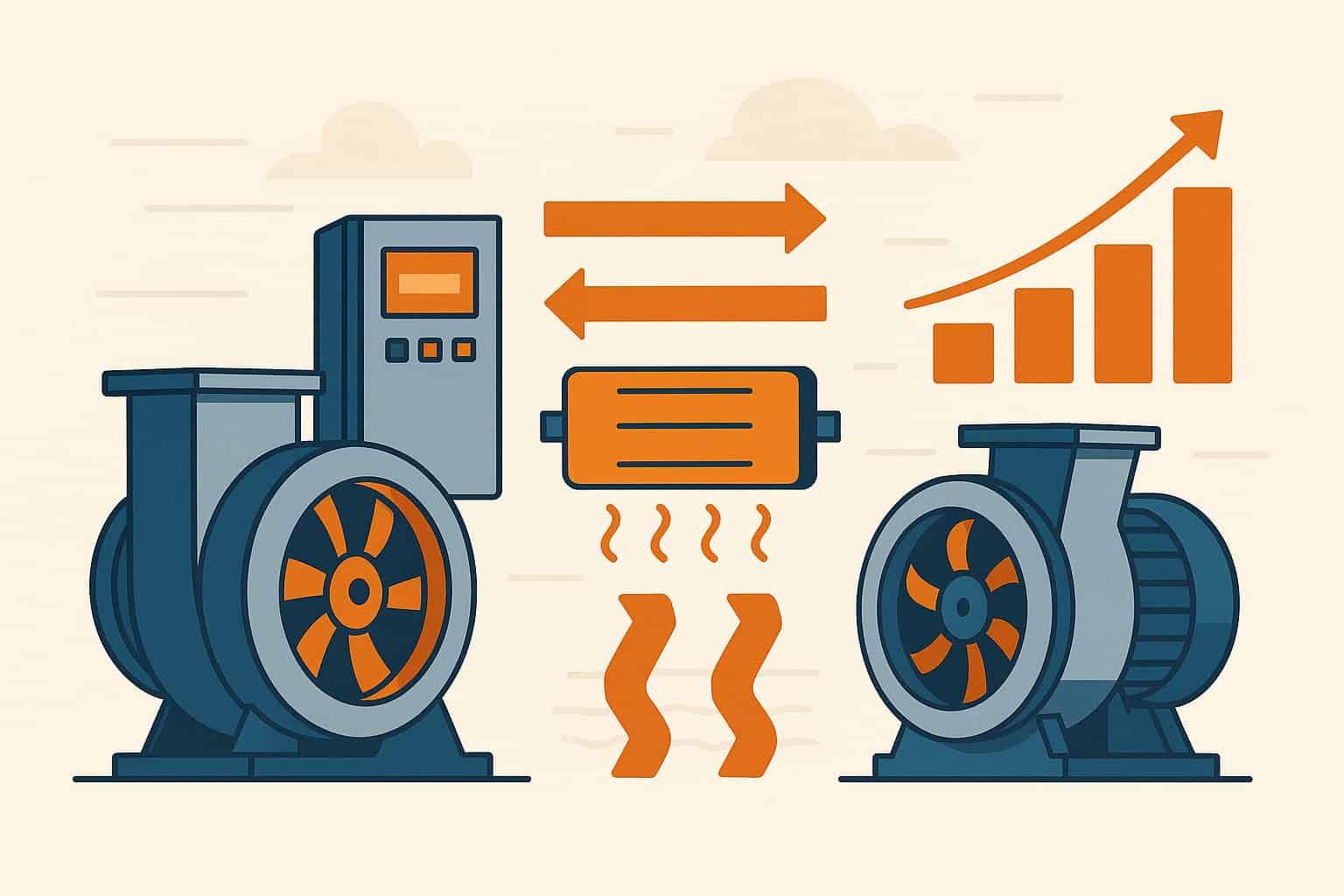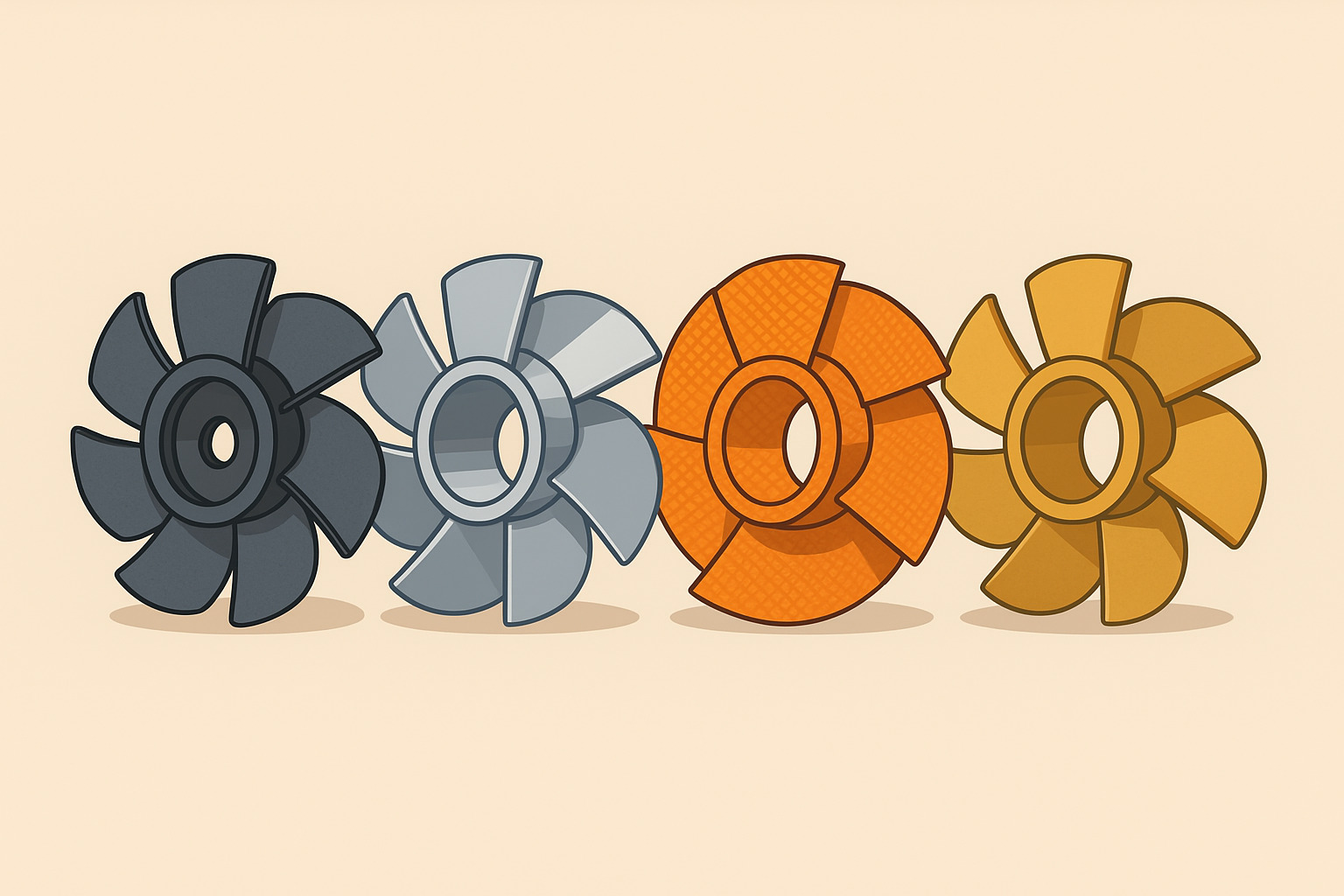Impeller material directly affects the service life and reliability of fans. This article compares the corrosion resistance, mechanical properties, and cost of common materials such as cast iron, stainless steel, aluminum alloy, FRP, and special alloys, providing selection advice based on typical conditions and maintenance tips.
1. Common Impeller Materials & Characteristics
| Material | Features | Density | Cost |
|---|---|---|---|
| Grey cast iron | Good rigidity, thermal conductivity, wear resistant, low corrosion resistance | 7.2 g/cm³ | Low |
| Stainless steel (304/316) | Strong corrosion resistance, high strength, suitable for chemical media | 7.9 g/cm³ | Medium-High |
| Aluminum alloy | Lightweight, good heat transfer, decent corrosion resistance, moderate strength & wear | 2.7 g/cm³ | Medium |
| FRP (fiberglass) | Excellent acid/alkali resistance, lower strength, sensitive to impact | 1.8–2.0 g/cm³ | Medium-High |
| Special alloys (Hastelloy, Monel) | Superior high-temp & chemical resistance, high price, for extreme environments | 8.0–8.8 g/cm³ | High |
2. Corrosion Resistance Comparison
Acid media: FRP > 316 stainless steel > 304 stainless > aluminum alloy > cast iron
Alkali/chloride: Hastelloy ≥ Monel > 316 SS > FRP > 304 SS
Hot & humid: Special alloys > stainless steel > FRP > aluminum > cast iron
3. Material Selection Tips
Analyze chemical composition: Confirm gas, pH, and temperature
Strength & abrasion: Prefer metals for high speed/particulate service
Weight & efficiency: Use aluminum or FRP for large, low-speed fans
Cost & maintenance: Balance initial and maintenance investment
Coating/lining: For less harsh conditions, use coated or lined standard impellers
4. Typical Applications
Chemical acid exhaust: FRP or 316 stainless
Marine/port ventilation: Monel or anti-corrosion lined aluminum
Standard mine ventilation: Cast iron or 304 SS, plus anti-corrosion paint
High-temp flue gas desulfurization: Hastelloy impellers
5. Corrosion Protection & Maintenance
Inspect quarterly, clean impellers, check coatings/linings
Apply epoxy/polyurethane coating to metal impellers as needed
Install corrosion/vibration sensors for early warnings
Keep spare impellers and coating stock for critical environments
6. Summary
By comparing corrosion resistance, mechanical properties, and cost, and considering operating and maintenance needs, you can select the optimal impeller material. For extreme environments, choose high-end alloys or FRP; for standard cases, a coated metal impeller often offers the best value.







